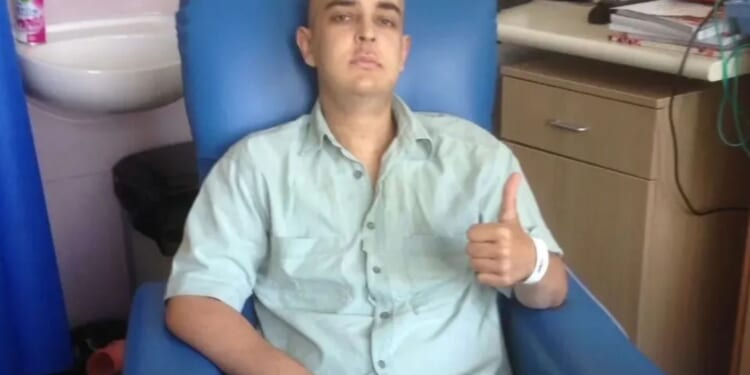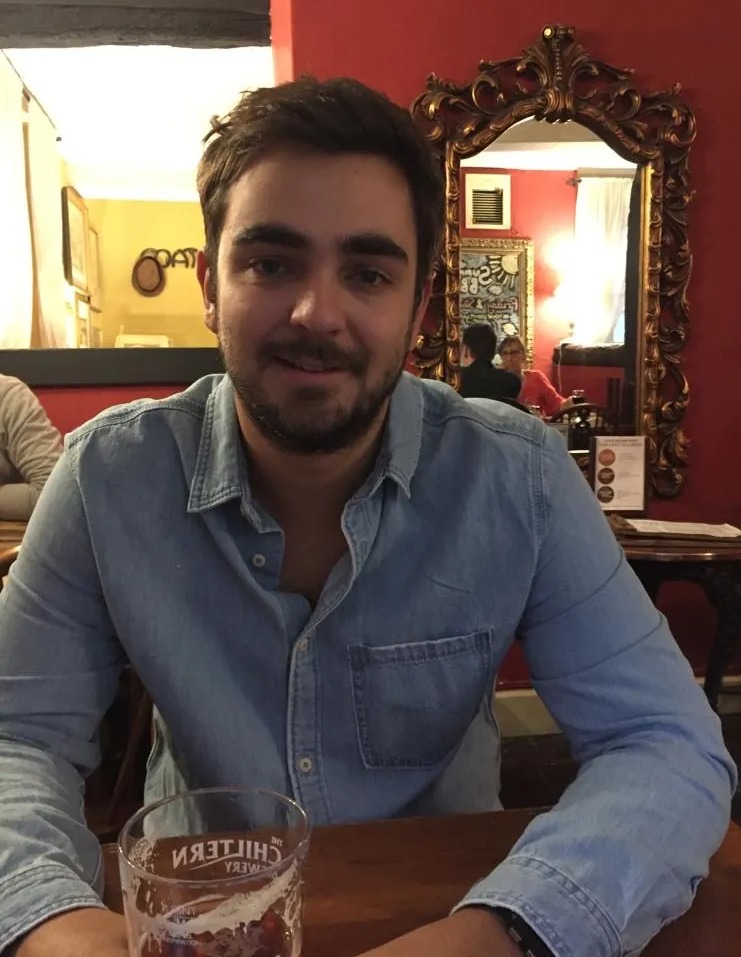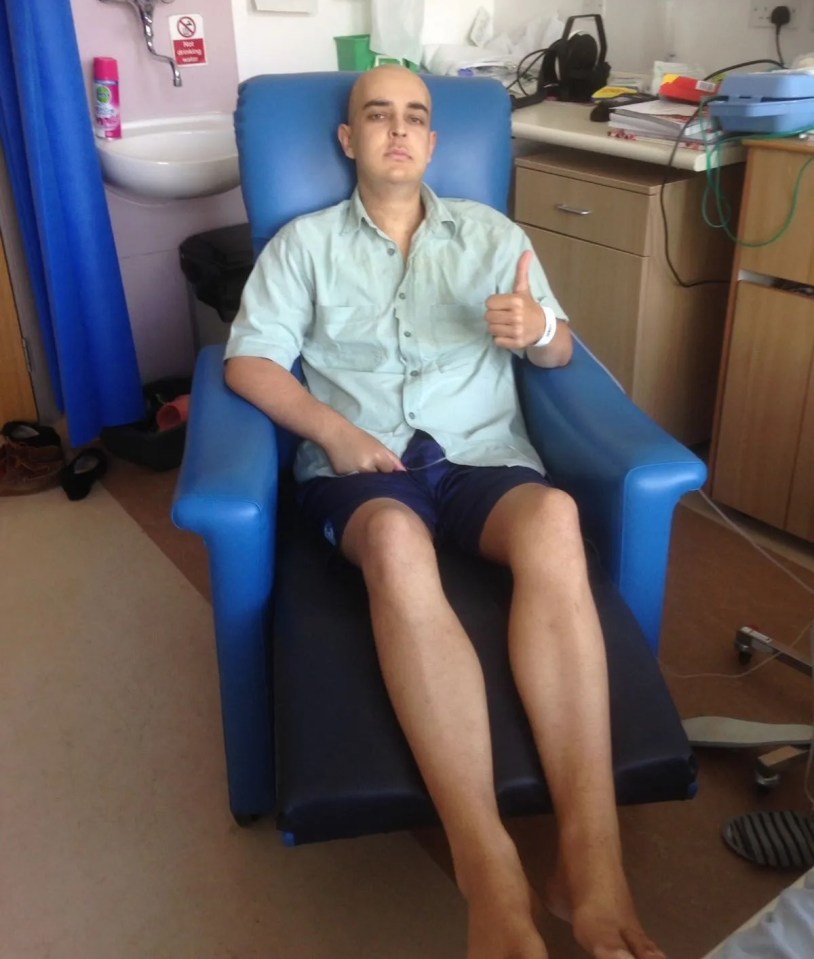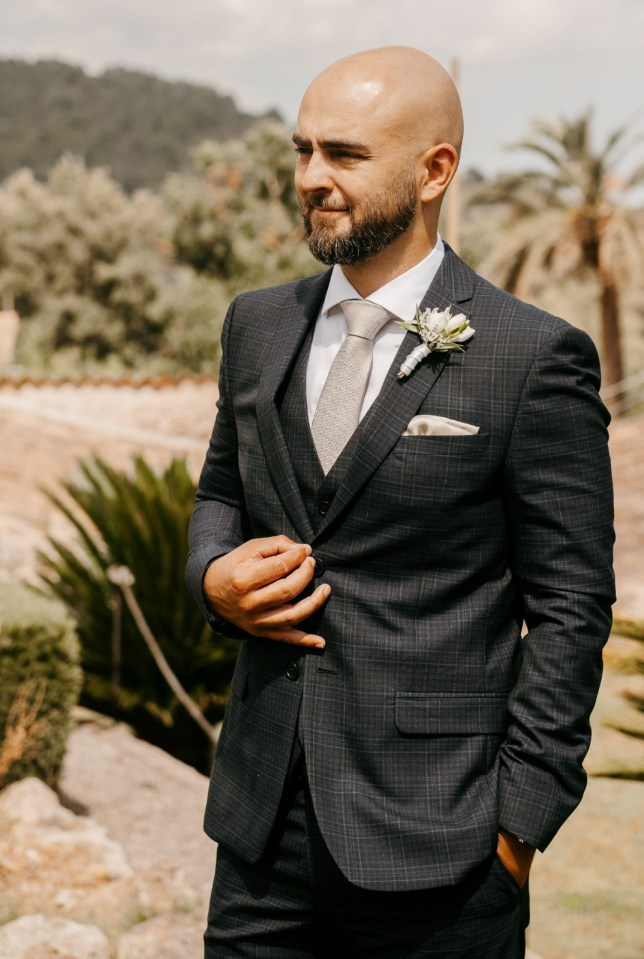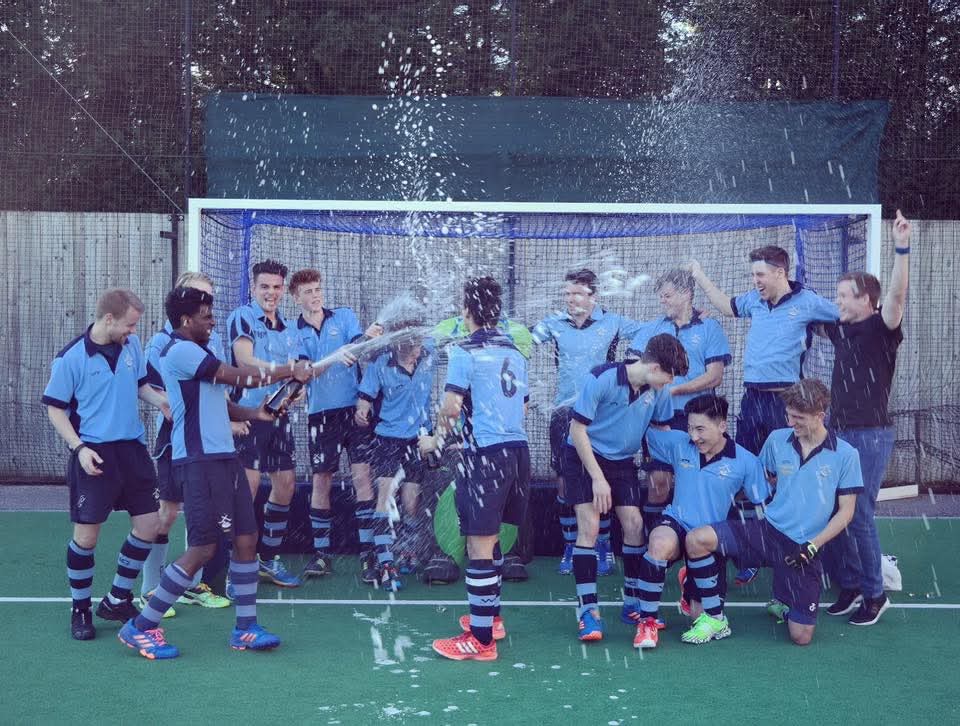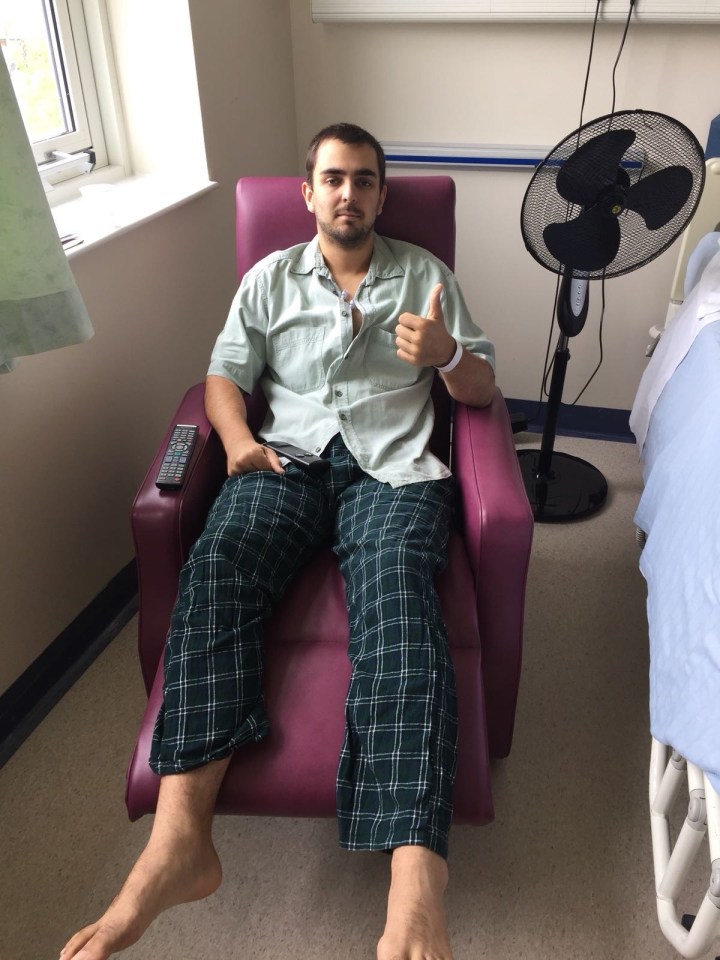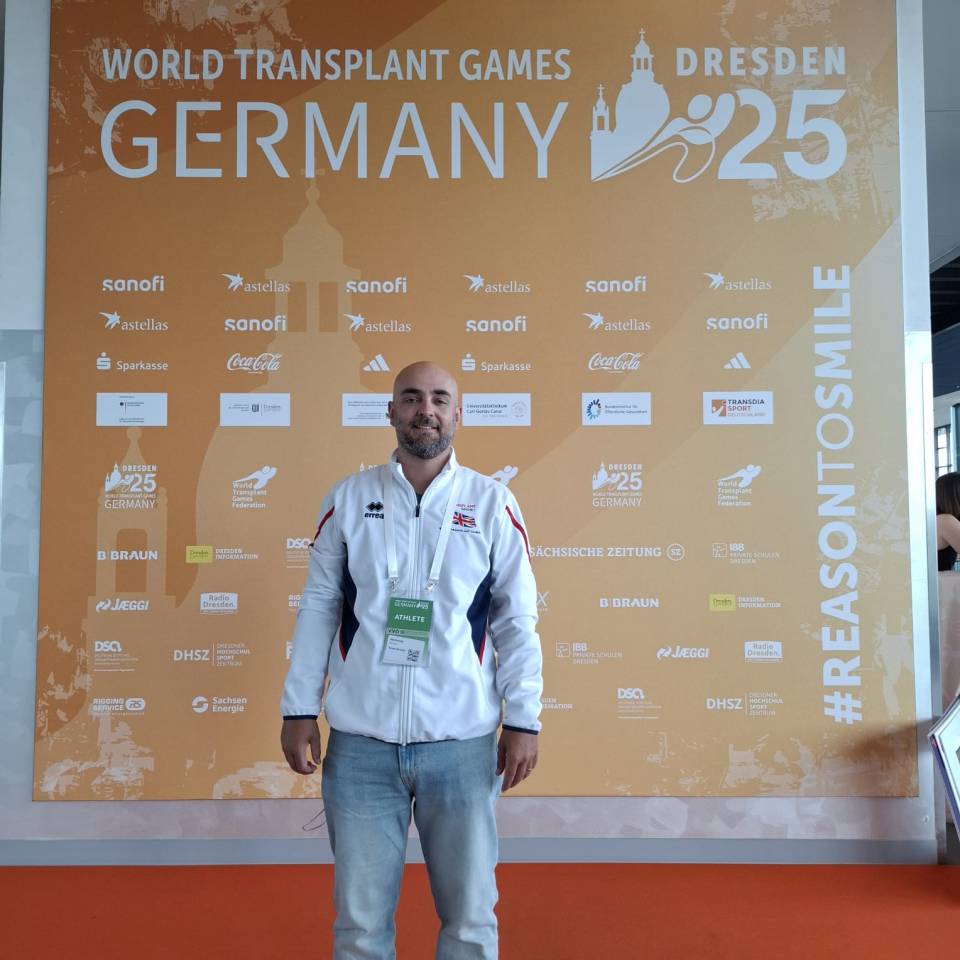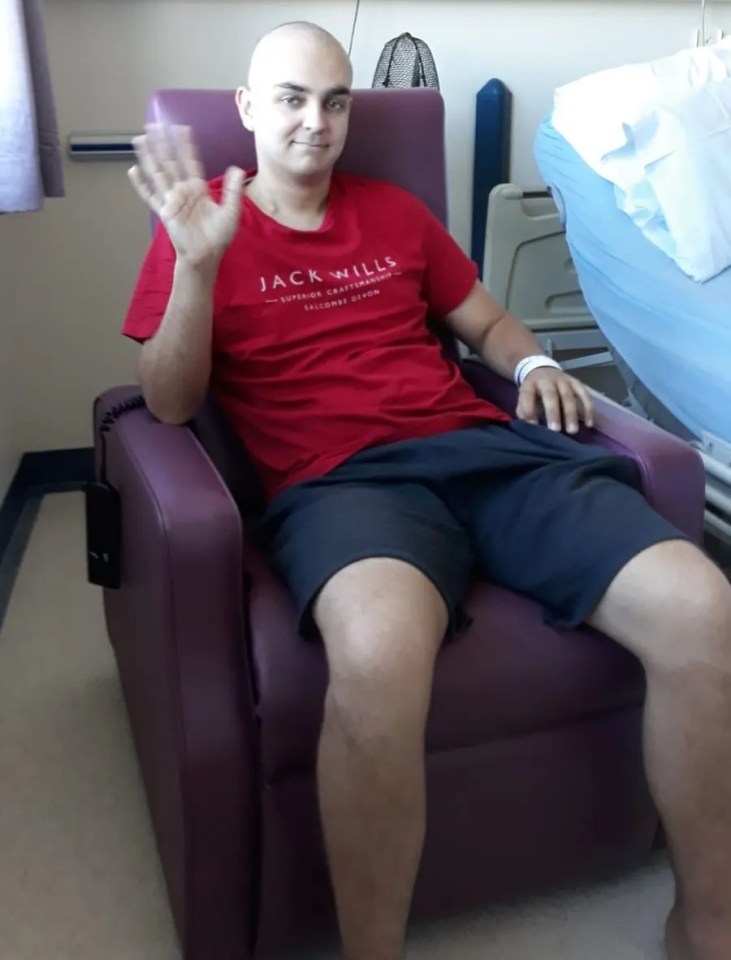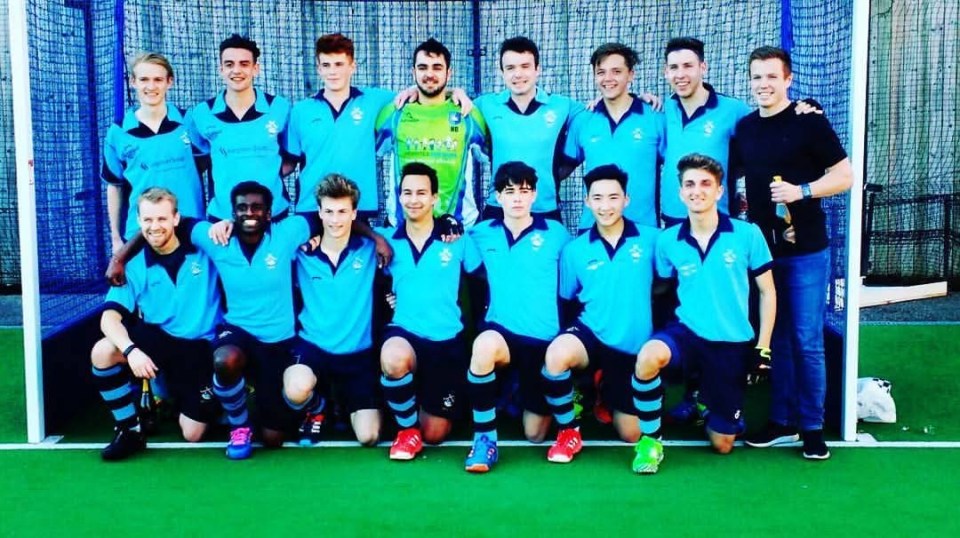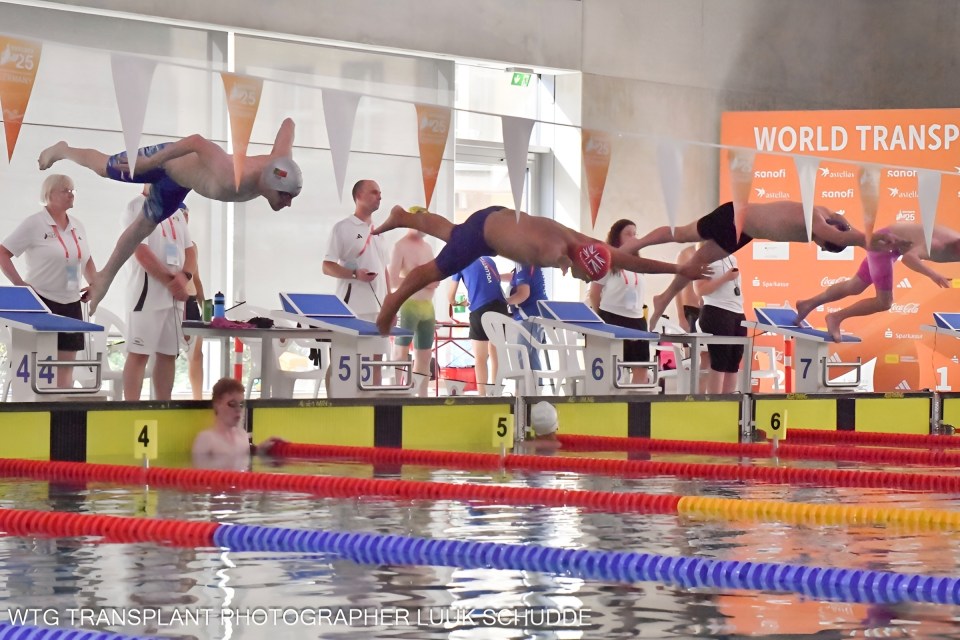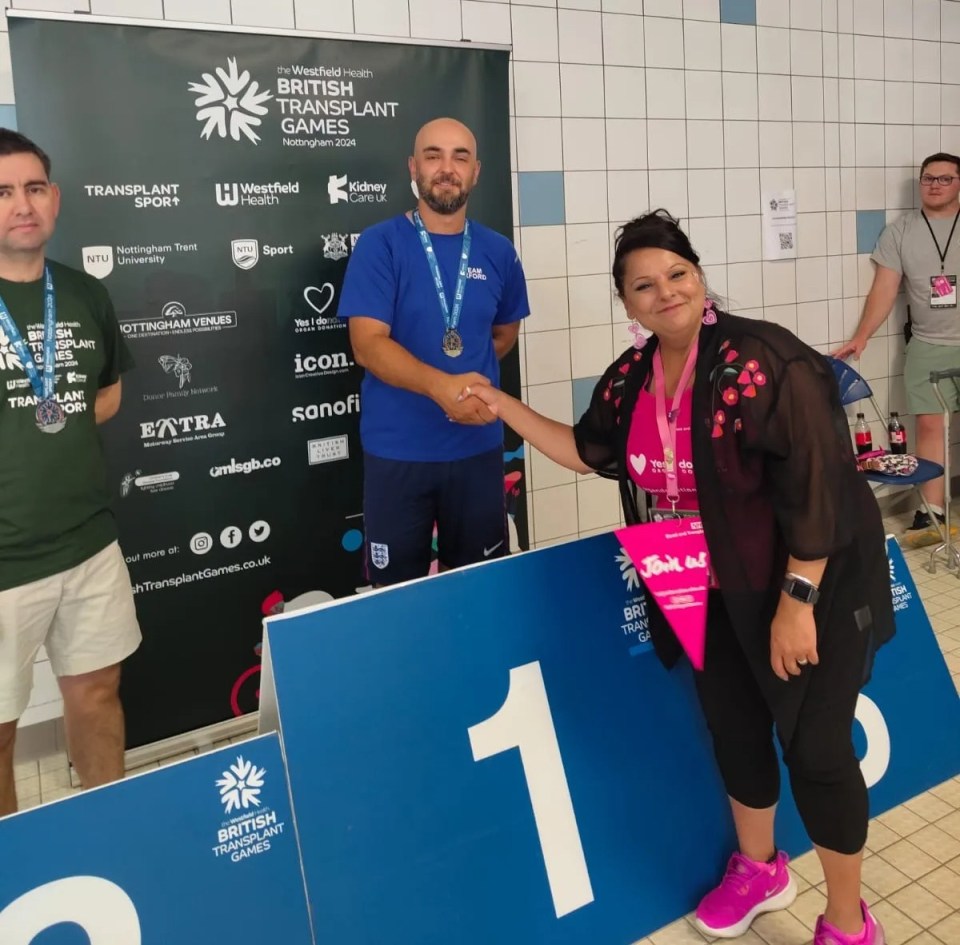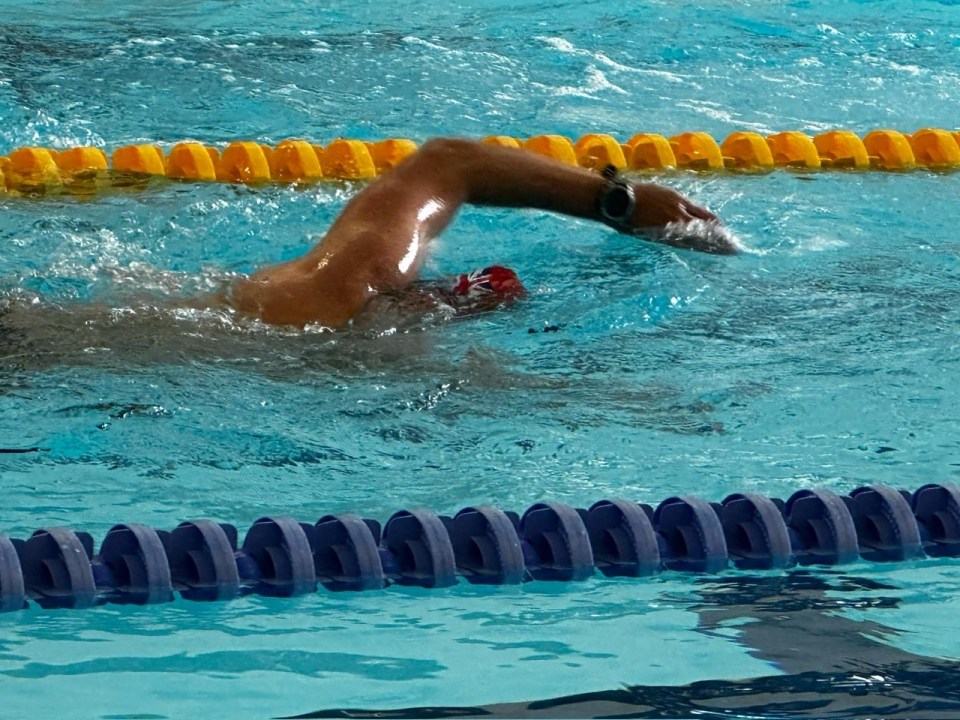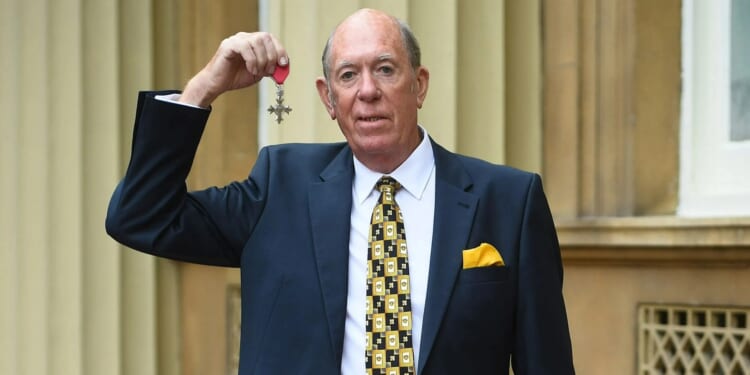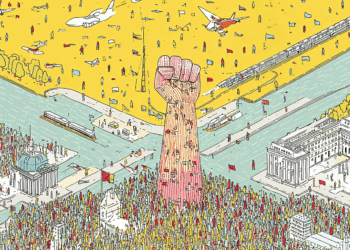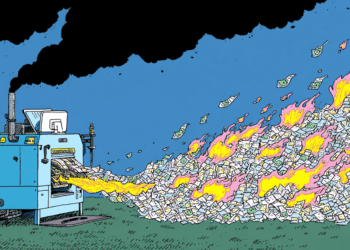WHEN Nick Barnard first noticed he was getting a lot of bruises, he assumed it was due to getting a bit rough during five-a-side hockey games.
Twenty seven at the time, he was otherwise healthy, and a key player on his competitive regional team.
But he soon started experiencing night sweats, bleeding gums and general fatigue.
“I just felt really awful all the time,” Nick, from near Aylesbury, Buckinghamshire, who was training two to three times a week and playing matches every weekend, tells Sun Health.
“Bruises were not unfamiliar as games can get physical and you can be knocked by the ball or a wayward stick.
“I wore good padding to prevent injuries, but I was still getting bruised.
“Despite all of this, I was being a typical bloke, brushing it off and not wanting to see a doctor.”
Everything changed during a five-a-side match in 2018.
“I was in goal and I could barely breathe,” Nick, now 34, who played for Wycombe Hockey Club in the South Premier League, says.
“I’d actually been feeling breathless that whole week, and was seeing stars just from a short jog.
“When I left the pitch and changed my shoes, I even noticed that the sides of my feet were bruised, which was very odd.
“That’s when my then-girlfriend Isabel put her foot down and made me call 111.”
He was told to get to A&E at Stoke Mandeville Hospital in Aylesbury within the hour.
There, he was given a blood test and, to his shock, he was diagnosed with acute myeloid leukaemia (AML) – a cancer of the white blood cells.
About 3,100 people are diagnosed every year in the UK, and nearly 80 per cent will not survive beyond five years, making it one of the most deadly types of the disease.
“I remember actually laughing because it felt so ridiculous to hear,” says Nick, who only a month earlier had won ‘player of the season’.
“I assume that was actually more the shock of it than anything.”
He immediately started chemotherapy tablets before moving on to intravenous treatment.
Nick experienced sickness and hair loss, and lost 13st 13lb (25kg) of body weight.
He was also sent to a fertility clinic to leave a sperm donation, as doctors said he would likely be infertile after the treatment.
I was so weak. One day I decided to empty the dishwasher and it took me an hour and a half sitting on a stool next to it
Nick Barnard
“That was something I didn’t expect,” Nick says.
“The whole process was so lightning quick that I didn’t feel like I had the opportunity to process how I felt. I think I was just numb.
“It’s still hard now. I’ve never been set on having kids, but being told you won’t be able to conceive naturally changes your perspective of things.
“You can just let fate decide, it has to be a very conscious decision as a couple.”
Nick was then told he needed a stem cell transplant (to replace damaged blood cells with healthy ones), which he underwent, as well as two more rounds of chemo.
He spent seven weeks in hospital before being put on a trial drug called Quizartinib, which aims to help people with his specific AML sub-type stay in remission.
“I was so weak,” remembers Nick.
“One day I decided to empty the dishwasher and it took me an hour and a half sitting on a stool next to it.
“From playing hockey three, sometimes four, times a week and being so athletic to that – it was really hard.”
The future of treatment for AML
By Sam Blanchard, Health Correspondent
ACUTE myeloid leukaemia is a type of blood cancer that affects the immune system’s white blood cells.
The causes of the disease are not well understood and it usually cannot be prevented. Previous chemotherapy, exposure to radiation or smoking could raise the risk.
It is rare and affects around 3,100 people each year in the UK, and 2,700 people die from it annually.
Symptoms of the disease include:
- Paleness
- Concerning tiredness or weakness
- Often feeling breathless for no reason
- Getting regular infections
- Unexplained weight loss
- Unexplained bleeding and/or bruising
AML often needs urgent treatment with chemotherapy and possibly a bone marrow transplant.
Last year, scientists said they were onto a “promising” new treatment which has not seen major progress for over 30 years.
They reckon they can knock out oxygen sensors that the cancer cells use to survive and multiply.
Lab trials on mice and human cells suggested this could stop acute AML – deemed a “largely incurable disease” – in its tracks. They hope one day it could work for other cancer types.
Professor Kamil Kranc, study leader at The Institute of Cancer Research in London, said: “Therapy for AML has barely changed in several decades.
“There is a huge need to discover better treatments for this aggressive disease.
“We’ve shown for the first time that targeting the ways that our cells use to respond to oxygen levels could provide a new way to treat leukaemia, without impacting the normal production of blood cells within the bone marrow.
“We’re hopeful this research will pave the way towards a new era of treatments.
“We’d also like to explore whether these therapies could be beneficial for solid tumours.”
The study, in the journal Nature Cancer, tested turning off enzymes called hypoxia-inducible factor prolyl hydroxylases (PHDs) that help cancer cells to grow when they sense oxygen.
The team, including Oxford University and Cancer Research UK, were “extremely excited” to prove that doing so destroyed the tumour cells.
They think it can be done with existing drugs used to treat the blood disorder anaemia, which would be cheaper and easier than the high-tech gene editing used in the study.
But the lab has also invented its own new drug to get the job done with fewer side effects.
Prof Kristian Helin, chief of the Institute of Cancer Research, said: “This work provides important insights into the way cancer uses signals within the body – such as those relating to oxygen levels – to grow and develop.
“I look forward to seeing this research progress into clinical trials.”
Source: NHS
Despite the challenges, Nick’s positive mindset and support network, including his parents, Isabel, and his employer, helped him through.
He returned to work in April 2019, nearly a year after his diagnosis, only to face further isolation during the pandemic.
But it was during this time that Nick rediscovered his love for swimming.
No longer able to play hockey due to the risk of injury, he began training at his local pool.
His fitness built up and he was encouraged by a doctor to consider the British Transplant Games – a celebration of life for people undergoing any type of transplant and to raise awareness of the need for donations.
Nick took part in 2023 and came away with a silver medal for the 50m breaststroke.
By 2024, he had claimed two golds in breaststroke, and in August this year, he represented Great Britain in the 2025 World Transplant Games in Dresden in Germany.
He finished in sixth place in the 50m breaststroke, fifth place in the 100m, and fifth in the 50m backstroke. Nick also took part in the freestyle relay and medley relay.
‘Shocked and elated’
“I was absolutely shocked and elated,” Nick, who works as an industry consultant for TV manufacturers for a market research company, says.
“I had it as a goal in my mind, but never expected to get there that quickly.
“Ironically, although I was good at hockey, I would have been unlikely to represent my country. It’s funny how life goes.”
He adds: “I remained positive throughout my treatment and never thought I wouldn’t make it, which really helped me and everyone around me.
“It’s now been nearly five years since my transplant and I’ve done some incredible things; I ran the London Marathon and in 2022 I was able to get married to Isabel.
“I am so grateful for the treatment I received. The only reminder I’m left with is that I’m completely bald now.
“But it saves a fortune on haircuts and helps me swim faster!”
Nick is telling his story as part of the #SpotLeukaemia campaign by Leukaemia UK and Leukaemia Care during Blood Cancer Awareness Month.
It aims to raise awareness of the signs and symptoms of the disease, encourage early diagnosis, and ultimately save lives.
Every day, 28 people in the UK are diagnosed with leukaemia.
The symptoms are varied and sometimes vague, meaning it often gets overlooked or misdiagnosed and is referred to as a ‘silent’ condition.
The most common symptoms of leukaemia are:
- Extreme tiredness (fatigue)
- Bruising
- Unusual bleeding
- Repeated infections
Other signs can include: a high temperature, weight loss, pale skin, shortness of breath, swelling of your lymph nodes, and feeling full in your tummy.
Fiona Hazell, CEO of Leukaemia UK, says: “Nick’s story is truly inspiring, and we were so excited to cheer him on as part of team GB in the World Transplant Games.
“Many people aren’t aware of the signs and symptoms of leukaemia until they or someone they know is diagnosed, which is why we are so grateful to Nick for sharing his story and raising awareness of what to look out for.
“Early diagnosis saves lives, so we want to make sure more people are aware of the signs and symptoms and know to contact their GP to ask for a blood test if they’re experiencing them.
“Together, we can stop leukaemia from devastating lives.”
Colin Dyer, CEO at Leukaemia Care, adds: “Nick’s story is nothing short of remarkable.
“From facing the shock of a leukaemia diagnosis to standing on the podium for Team GB, he shows what’s possible when people get the right treatment and support.
“But his journey also reminds us that recognising the symptoms early – things like fatigue, bruising and repeated infections – can save lives.
“We’re incredibly proud of Nick for using his experience to help others spot the signs and act sooner.”

